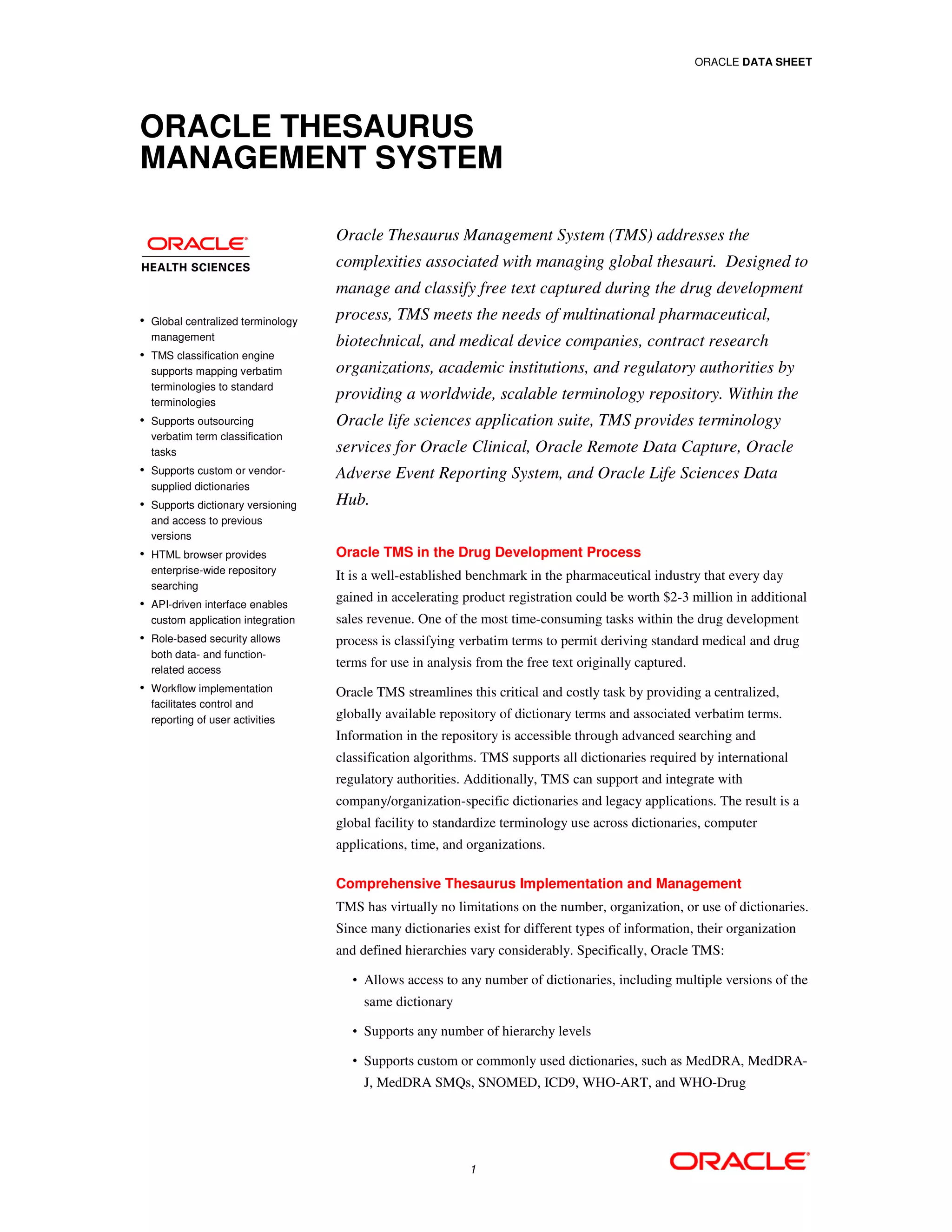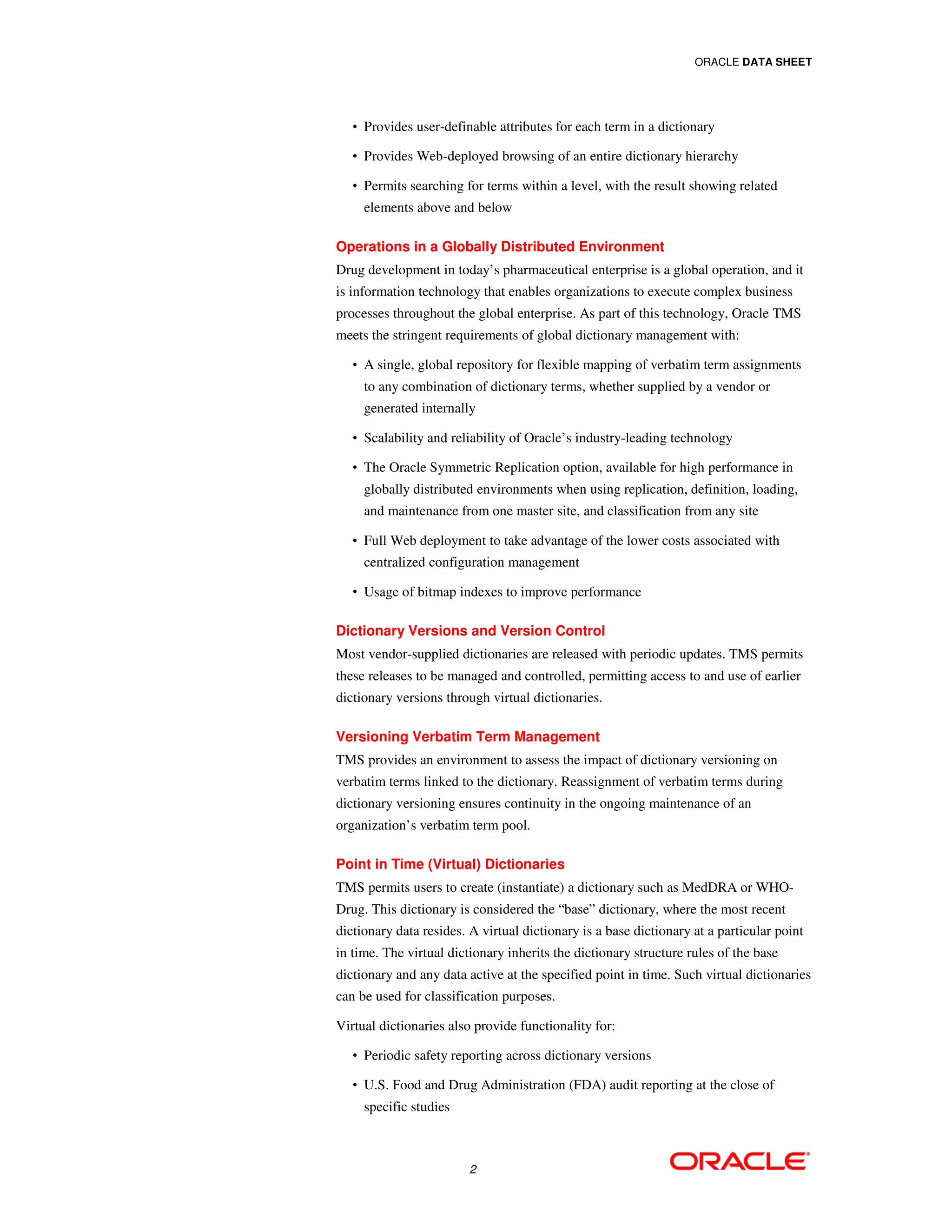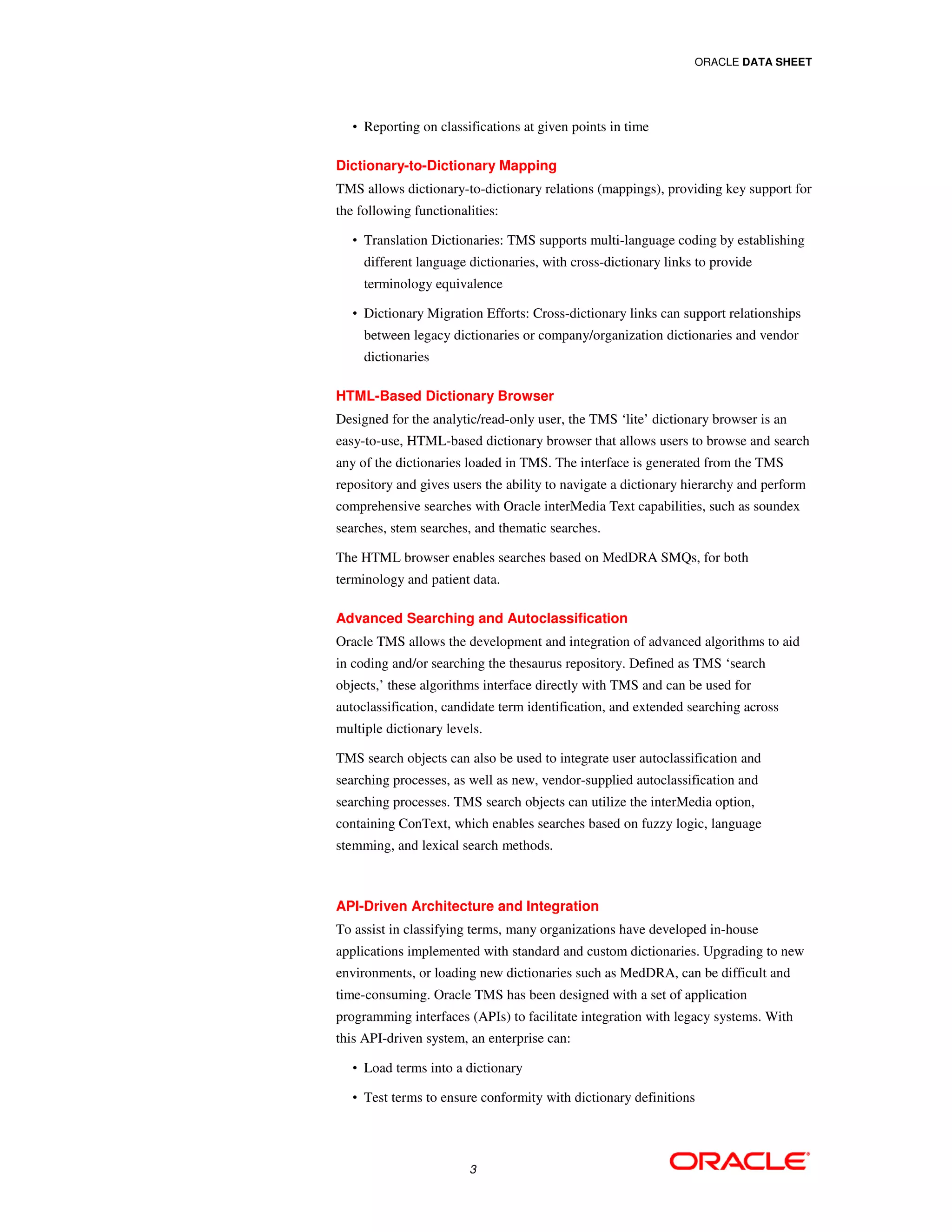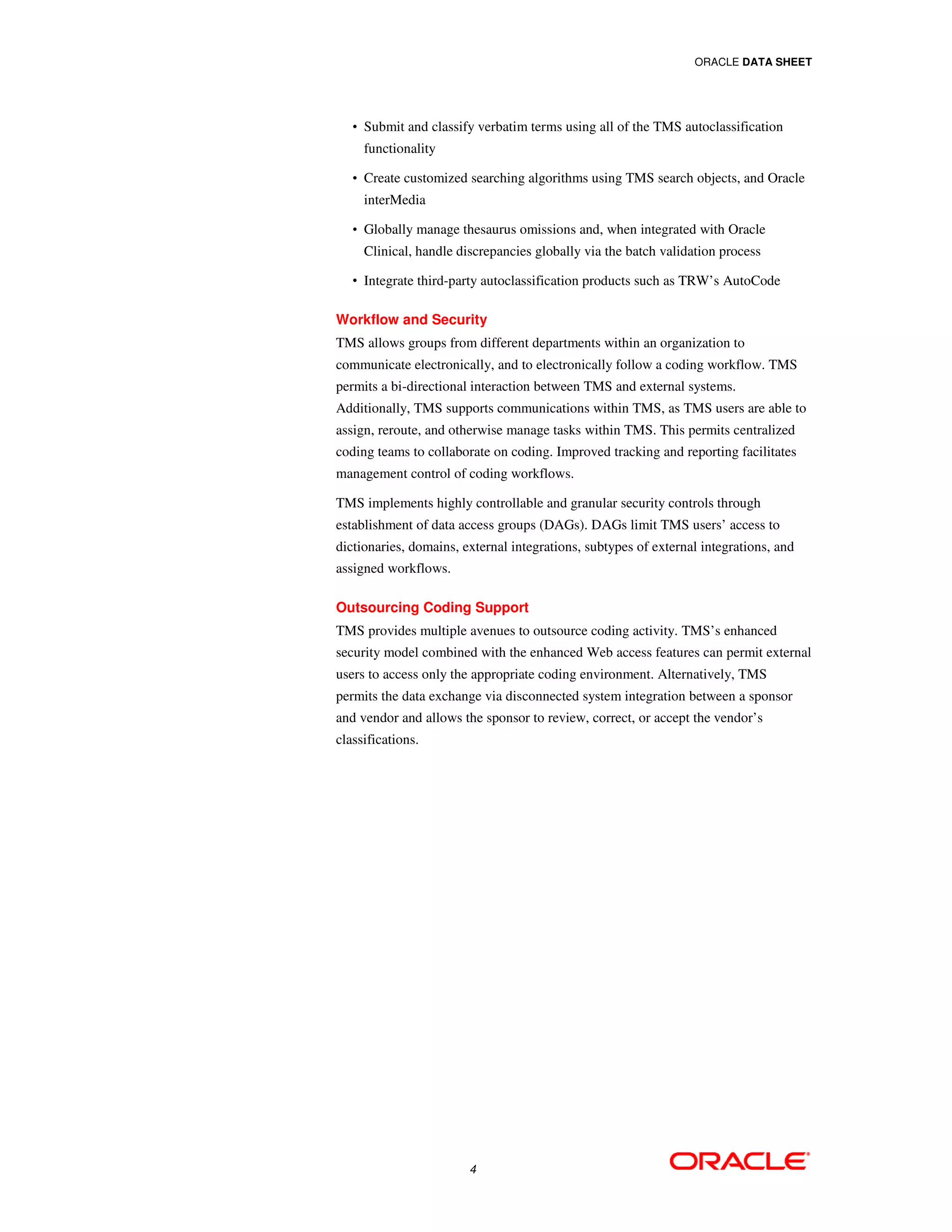Oracle Thesaurus Management System (TMS) provides a centralized global repository for managing medical terminology and classifying verbatim terms from clinical trials. It supports multiple dictionaries, allows customization, and provides tools for searching, browsing, and classifying terms. TMS integrates with Oracle's clinical applications and can scale globally to support drug development processes across organizations.



